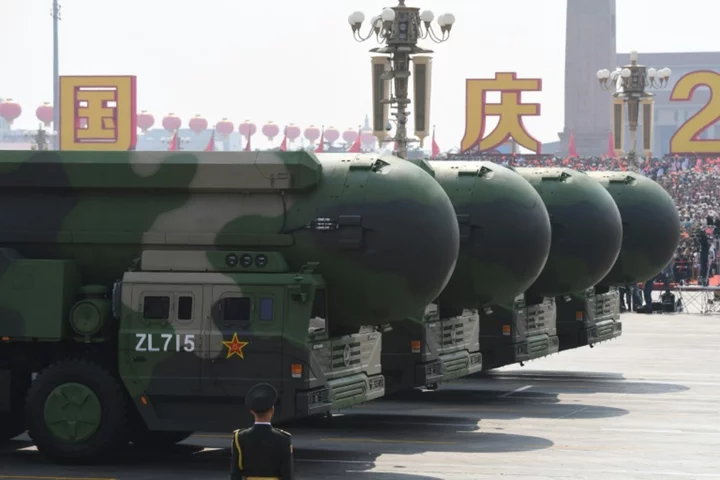UN Secretary General Antonio Guterres said Tuesday that the world was plunging into a new nuclear arms race and warned of the shadow of "annihilation" hanging over the world.
With nuclear-armed nations expanding and modernizing their arsenals, the UN chief called for a revitalized push to reduce and eventually eliminate those weapons.
"A worrisome new arms race is brewing. The number of nuclear weapons could rise for the first time in decades," Guterres told the General Assembly on the final day of its yearly session.
"Any use of a nuclear weapon -- anytime, anywhere and in any context -- would unleash a humanitarian catastrophe of epic proportions," he said.
"Nuclear sabers are again being rattled. This is madness. We must reverse course," he said.
In June the Stockholm International Peace Research Institute reported that the world's nuclear powers, and China in particular, increased investment in their arsenals for a third consecutive year in 2022.
While the total number of nuclear warheads held by Britain, China, France, India, Israel, North Korea, Pakistan, Russia and the United States had fallen about 1.6% to 12,512 over the previous year, SIPRI said the declining trend was on the cusp of a reversal.
Excluding warheads slated for dismantling, the number of usable nuclear weapons had actually increased, according to SIPRI.
The bulk of the increase was in China, which increased its stockpile from 350 to 410 warheads.
Meanwhile North Korea has ramped up its testing of its force for delivering nuclear weapons, like long-range missiles and submarines.
Guterres said the situation is a "matter of urgency" for the world.
He said nuclear powers are making their arsenals faster, more accurate, and more difficult to detect.
Guterres said the architecture for stopping nuclear proliferation and advancing disarmament has eroded.
To get back on the track toward a reduction of such weapons, he called for countries to commit to never using their nuclear weapons "under any circumstances."
The UN leader urged reinvigoration and strengthening of the Treaties on Non-Proliferation of Nuclear Weapons and the Prohibition of Nuclear Weapons.
And he urged implementation of the Comprehensive Nuclear Test Ban Treaty, adopted by the UN General Assembly in 1996 but still not in force because several key countries have not joined in.
"The world has spent too long under the shadow of nuclear weapons. Let’s step back from the edge of disaster," he said.
abd/pmh/dw









